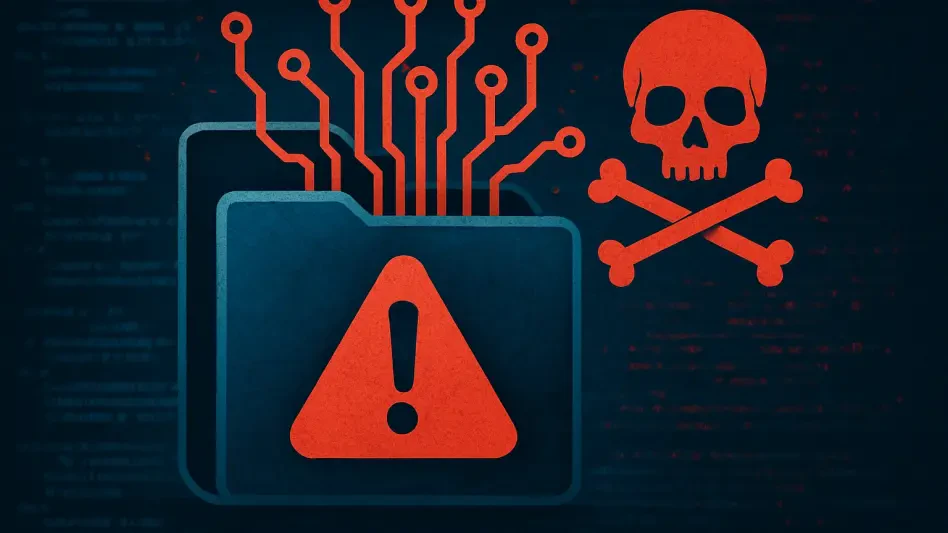What happens when a tiny glitch in a widely used software library can silently plant malicious files on millions of systems worldwide, creating a nightmare for developers and organizations alike? This chilling possibility became a reality with the discovery of a critical flaw in async-tar, a Rust crate deeply embedded in tools like the Python package manager uv. This vulnerability, lurking in the shadows of header parsing logic, has sent shockwaves through the open-source community, exposing the fragility of the software supply chain. The stakes are high, and the implications are far-reaching for developers and organizations alike.
Why This Story Matters
The open-source ecosystem is the backbone of modern software, powering everything from startups to global enterprises. Yet, with over 7 million downloads of the unpatched tokio-tar fork on crates.io, this flaw in async-tar underscores a stark reality: even the most trusted tools can harbor hidden dangers. Supply chain attacks are on the rise, and a single compromised dependency can trigger catastrophic breaches. This issue isn’t just a technical glitch—it’s a wake-up call about the urgent need to secure the sprawling network of code that developers rely on every day.
Unraveling the Danger in Async-Tar
At the core of this vulnerability lies a deceptive flaw in how async-tar processes tar archive headers. By exploiting discrepancies between ustar and pax header sizes, attackers can smuggle hidden files past security checks, enabling file overwrites or injecting malicious code. Identified by Edera, a secure computing company, this bug poses a direct threat to systems that handle tar archives, potentially allowing attackers to manipulate critical files undetected.
The impact extends beyond the original library. Forks like tokio-tar and astral-tokio-tar, derived from the same codebase, inherited this vulnerability. While astral-tokio-tar has been patched for users of uv, tokio-tar remains exposed, putting countless downstream projects at risk. The sheer scale of its usage amplifies the potential for widespread exploitation, turning a niche issue into a global concern.
Real-world consequences are not hypothetical. Edera warns that attackers could leverage this flaw for supply chain attacks, exploiting build systems or evading security tools like bills of materials (BOM). A single breach could ripple through interconnected projects, highlighting how a small oversight in one library can jeopardize entire ecosystems.
The Fragmented Fork Problem
The diversity of forks surrounding async-tar reveals a deeper structural issue in open-source development. Each variant—whether tokio-tar, astral-tokio-tar, or others—evolves independently, often without clear ownership or consistent maintenance. This fragmentation makes it nearly impossible to coordinate patches or ensure uniform security across the board, leaving gaps that attackers can exploit.
Edera’s researchers faced significant hurdles in addressing the flaw, struggling to even contact maintainers of tokio-tar. Described as potential “abandonware,” the library’s lack of active oversight exemplifies a systemic challenge: many critical projects languish without dedicated support. This situation raises tough questions about accountability in a decentralized community where responsibility is often unclear.
The absence of standardized protocols for vulnerability disclosure compounds the problem. Without established channels for reporting issues or mandatory security documentation, delays in patching become inevitable. Edera’s experience, which involved unconventional methods to reach maintainers, points to an urgent need for better communication frameworks in open-source ecosystems.
Shattering Myths About Rust’s Security
A common misconception is that Rust, with its focus on memory safety, offers an impenetrable shield against vulnerabilities. However, this flaw in async-tar shatters that illusion. While Rust prevents issues like buffer overflows, it cannot guard against logic errors—mistakes in code design that open doors to exploitation, as seen in this header parsing bug.
Industry experts emphasize that no programming language is a silver bullet. “Rust’s safety guarantees are powerful, but they don’t cover every angle,” noted a researcher from Edera, highlighting the importance of rigorous testing beyond language features. This incident serves as a reminder that security is a multilayered effort, requiring constant vigilance at every stage of development.
The broader implication is clear: over-reliance on any single tool or language can breed complacency. Developers must complement language safeguards with thorough code reviews and automated testing, especially for components like file parsing libraries that handle untrusted input. This case underscores the need for a holistic approach to software safety.
Steps to Safeguard Projects
For developers using affected libraries, immediate action is critical. Edera recommends migrating to patched alternatives like astral-tokio-tar or the standard tar crate. Although tar lacks asynchronous capabilities, it provides a secure foundation free from this specific vulnerability, offering a viable short-term solution for many projects.
Beyond switching libraries, auditing dependencies should become a routine practice. Tools like Cargo’s dependency checker can help uncover outdated or vulnerable components before they are exploited. Staying proactive with regular reviews of a project’s dependency tree can prevent small issues from escalating into major breaches.
Finally, advocating for community-wide improvements is essential. Developers are encouraged to contribute to discussions on security practices, pushing for mandatory documentation and streamlined vulnerability reporting channels. Supporting initiatives to consolidate efforts around actively maintained forks, as seen with Edera’s decision to archive their own krata-tokio-tar in favor of astral-tokio-tar, can reduce fragmentation and enhance overall safety.
Reflecting on a Critical Lesson
Looking back, the discovery of the async-tar flaw stood as a pivotal moment that exposed the hidden risks within open-source dependencies. It highlighted the urgent need for better maintenance and accountability in a fragmented landscape of forked projects. The unpatched status of tokio-tar served as a stark warning of what could happen when critical software lacked oversight.
Moving forward, the community took steps to address these gaps by prioritizing patched alternatives and advocating for systemic change. Developers were urged to integrate dependency audits into their workflows and support efforts to establish clear security protocols. This incident became a catalyst for reevaluating how shared responsibility could strengthen the software ecosystem against future threats.








